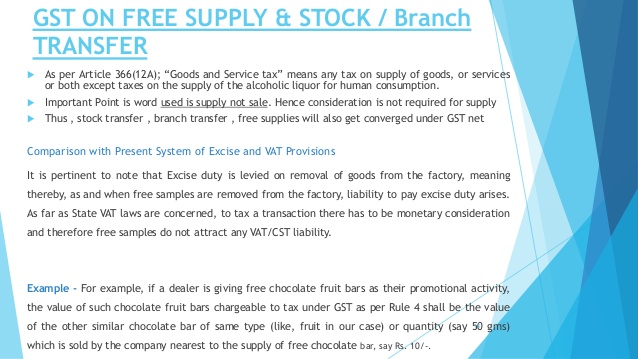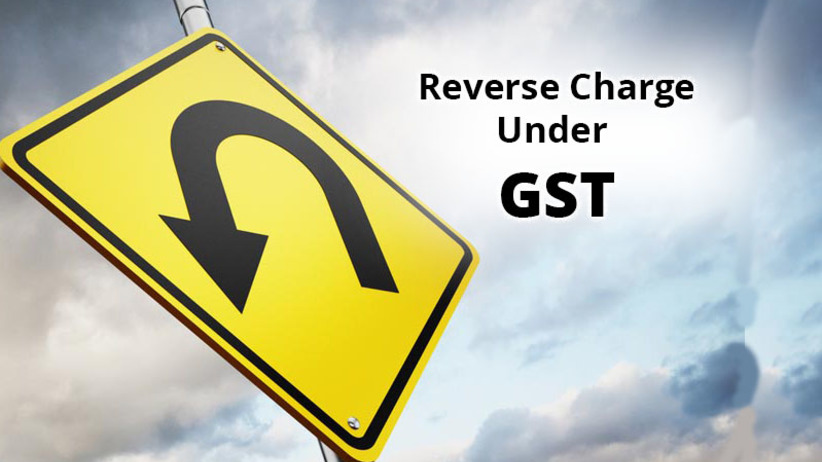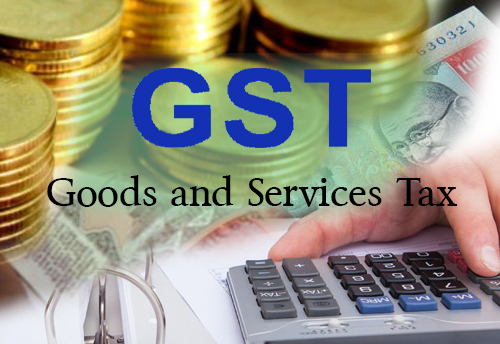All about Prosecution of offenses under GST

 The draft model of GST prescribes the offenses and penalties in Chapter XVI which deals with 21 offenses in section 66 along with the penalty as per section 8 for compounding of offenses by a person who is not eligible for the same.
The draft model of GST prescribes the offenses and penalties in Chapter XVI which deals with 21 offenses in section 66 along with the penalty as per section 8 for compounding of offenses by a person who is not eligible for the same.
Prosecution is the starting of legal proceeding or the process of leveling charges against the offender.
Section 198 of the Code of Criminal Procedure defines “prosecution” as the institution of the legal proceedings against an accused person.
List of offenses:
The offenses provided in the draft model are as follows:
a) Making a supply without an invoice or with an incorrect one;
b) Issuing an invoice without any supply;
c) Not paying the tax collected for a more than three months;
d) Not paying the tax collected contravening the Act for more than 3 months;
e) Non-deduction of TDS or not depositing the same under section 37 of the Act;
f) Non collection or nonpayment of tax collected at source as per section 43C of the Act;
g) Availing input tax credit without receipt of any goods or services;
h) Getting refund by means of fraud;
i) Availing input tax credit by a Distributor by violating the provisions of Section 17;
j) Filing false information or false accounts of financial records to evade tax;
k) Failure to pay tax despite being liable to do so;
l) Providing false information for registration;
m) Obstructing any official in doing his duty;
n) Transporting goods without its required documents;
o) Concealing turnover resulting in tax evasion;
p) Failure in maintaining books of accounts or documents as specified in the Act;
q) Failure to provide information required by an officer as per the Act in any proceeding;
r) Supplying goods which should be confiscated
s) Issuing invoice using TIN of another person;
t) Tampering any evidence;
u) Disposing of goods detained under the Act.
What is “penalty”?
The word “penalty” is not defined in the Model GST but judicial pronouncements have explained a penalty as:
- A temporary punishment imposed by a statute in terms of money to be paid for the commission of an offense;
- A punishment imposed by a contract for doing or failing to do a job which a party is liable to do.
General principles for imposing penalties:
The Act provides that no penalty should be imposed without issuing a show cause notice and hearing both the sides after giving an opportunity to the accused person to defend the allegations leveled against him.
The penalty imposed would depend upon the facts and circumstances of the case. It has to be commensurate with the degree of breach of law or the rules as alleged by eth department. The nature of offense should clear in the order imposing such penalty.
The model draft provides that the provisions of the law under which the penalty is imposed should also be stated.
Section 68 further states that no substantial penalty should be imposed for any minor breach which is defined as violation of the provisions of law where the tax involved is less than Rs.5000/- or an error that can be rectified easily.
The levy of penalty is actually based on principles of natural justice and of that involving international trade and agreement.
Quantum of penalty provided in the Model GST:
Section 66(1) of the act provides that any person who has committed any offense mentioned in section 66 shall be punished with a penalty that shall be higher of the amount of tax evaded or has been obtained as refund by fraudulent means or that has not been deducted or collected or has been short deducted or short collected.
Section 66(2) also provides that any person who repeatedly makes a short payment of tax shall be a liable to penalty that is the higher of 10% of the tax short paid or Rs.10,000/-
Section 66(3) of the Act provides for levy of penalty up to Rs.25,000/- for any person who abets any of the aforesaid offenses or deals in any way with goods that are liable to confiscation or deals with supply of services in contravention of the Act or fails to appear before an authority issuing a summon to him or fails to issue any invoice for a supply that is required to be done under law.
Penalty for any contravention where no separate penalty has been prescribed:
Section 67 of the Act provides that any person who contravenes any law under this Act for which no separate penalty has been provided, shall be punishable with a penalty that may extend up to Rs.25,000/-
Results of Prosecution:
If the person is convicted for any offense under Sec 73(1), then he shall be punishable with a penalty as under the following:
| Amount of Tax Evaded | Punishment |
| 1. Between Rs.25 lakh and Rs.50 lakh | 1 year imprisonment along with fine |
| 2. Between Rs.50 lakh and Rs.250 lakh | 3 years imprisonment along with fine |
| 3. More than Rs. 250 lakh | 5 years imprisonment along with fine |
Minimum quantum of punishment:
In the absence of special grounds to the contrary to be recorded in a judgment of the Court, the Act provides that the term of imprisonment shall not be for a period of six months.
Cognizance of offenses:
No Court shall take cognizance of any offense except with the prior sanction of the authority and no Court lower in position than a Magistrate of the First Class, shall try any offense. This has been provided in clause 74 of the GST Model Law, 2016.
Presumption of “mens rea”:
clause 75 of GST Model Law, 2016 provides that for prosecution for an offense under this Act which requires a “mens rea” or guilty mind on the part of the accused, the Court shall presume the existence of such a condition but the accused has the liberty to prove that he had no such mental state for committing the act charged as an offense in that prosecution. “Mens rea” includes intention or motive of a fact and a reason to believe a fact.
Also read:


 Sales Tax For E-Commerce: 3 Things Small Businesses Should Know
Sales Tax For E-Commerce: 3 Things Small Businesses Should Know  What Is The GST Liability on Free Supply of Goods and Services?
What Is The GST Liability on Free Supply of Goods and Services?  Some FAQs about GST- Understanding Scope and Provisions of GST
Some FAQs about GST- Understanding Scope and Provisions of GST  Understanding the Reverse Charge mechanism under GST and IGST?
Understanding the Reverse Charge mechanism under GST and IGST?  Pros and Cons of GST- Is Ushering in of GST worth Celebrating as media wants us to believe?
Pros and Cons of GST- Is Ushering in of GST worth Celebrating as media wants us to believe?  Arrests and Detention Provisions under GST in Detail- Are these justified
Arrests and Detention Provisions under GST in Detail- Are these justified  ITAT Amritsar: No Section 269SS Violation for One-Time Cash Payment Before Sub-Registrar
ITAT Amritsar: No Section 269SS Violation for One-Time Cash Payment Before Sub-Registrar  Tax Officials Unleash Digital Dragnet: How New Raid Powers Redefine Privacy, Property Rights in India and likely to Fuel Corruption
Tax Officials Unleash Digital Dragnet: How New Raid Powers Redefine Privacy, Property Rights in India and likely to Fuel Corruption  Income Tax Department Rewards for Reporting Tax Evasion: A Comprehensive Guide
Income Tax Department Rewards for Reporting Tax Evasion: A Comprehensive Guide  Forfeiture of Gratuity by Employer- What are the Remedies for an employee- Can employer be challenged?
Forfeiture of Gratuity by Employer- What are the Remedies for an employee- Can employer be challenged?